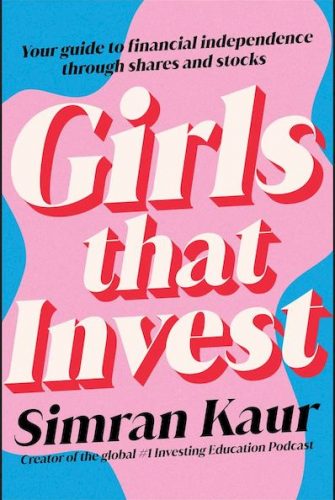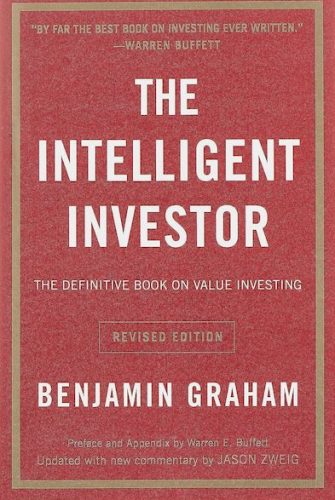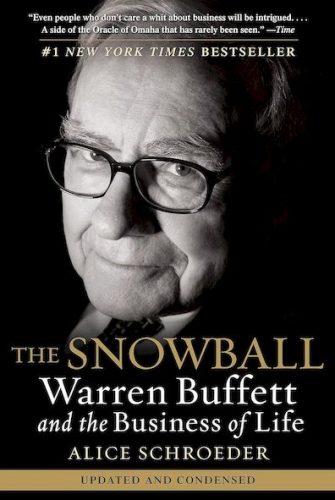Imagine the secrets to wealth whispered by titans of industry like Andrew Carnegie and Thomas Edison. Now imagine those secrets distilled into a timeless guide, relevant for as long as ambition burns bright. Published in 1937, Napoleon Hill’s Think and Grow Rich isn’t just a historical artifact, it’s a potent formula for achieving financial success — no matter the era.
Intrigued? Dive deeper into this summary and unlock the keys to:
- Harnessing the power of your thoughts: Discover how your mindset shapes your reality and how to cultivate wealth-generating beliefs.
- Transforming desire into action: Learn the six-step plan to turn your dreams into concrete goals and strategies.
- Building an unstoppable team: Uncover the power of collaboration and how to create a “mastermind” group to fuel your journey.
- Tapping into your hidden potential: Explore the secrets of your subconscious and unleash its power to attract success.
Think and Grow Rich may be nearly a century old, but its wisdom remains evergreen. So, if you’re ready to unlock the wealth within you, step into the pages and begin your transformation. The journey to financial freedom starts here.

- Key Points
- Summary: ‘Think and Grow Rich’ by Napoleon Hill
- Aspirations, wishes and strategies increase wealth
- Cultivate confidence in your capacity to succeed by affirming that you will prevail.
- You don’t require higher education to gain advanced levels of knowledge and wealth.
- Envision vivid mental depictions of your success. Imagination is the “workshop of the mind.”
- To enhance your abilities, collaborate with an exceptional team. Make them your “master mind.”
- Do not allow momentary setbacks to enchant you. Triumph often lurks in the shadows.
- Stay dedicated to your objectives and your purpose.
- Nothing surpasses a blend of fervor and discipline.
- You can shape and access the deepest recesses of your mind.
- About the Author
Key Points
- Thoughts are powerful: Your thoughts have the power to create wealth or poverty.
- Desire is essential: You must have a strong desire for wealth to achieve it.
- Faith is key: You must believe that you can achieve your goals.
- Knowledge is power: You need knowledge to make sound financial decisions.
- Imagination is your workshop: Use your imagination to create a mental picture of your success.
- Mastermind groups are powerful: Surround yourself with supportive people who believe in you.
- Persistence is essential: Don’t give up on your dreams, even when things get tough.
- Passion and discipline are a winning combination: You need both passion and discipline to achieve your goals.
- Tap into your subconscious mind: Your subconscious mind can help you achieve your goals.
- Overcome your fears: Fear can hold you back from achieving your goals.
Summary: ‘Think and Grow Rich’ by Napoleon Hill
When author Napoleon Hill “was but a boy,” his mentor, Andrew Carnegie, the legendary corporate leader, disclosed his hidden wealth-generating formula to him and tasked him with creating a book that would elucidate this secret approach.
During Hill’s 20-year quest to meet that challenge, he examined the practices and philosophies of countless corporate luminaries. This roster includes Theodore Roosevelt, John D. Rockefeller, F. W. Woolworth and many other well-known personalities who constructed substantial fortunes based on Carnegie’s wisdom. It all commences with this basic concept: Your thoughts are tangible entities! With fervor and purpose, your thoughts can evolve into riches.
“One comes, ultimately, to believe whatever one repeats to one’s self, whether the statement be authentic or false…Every man is what he is because of the dominating thoughts which he permits to occupy his mind.”
Edwin C. Barnes embodies this principle. Barnes – an impoverished “nobody” – ardently aimed to establish a partnership with Thomas Edison, the renowned inventor. Barnes had no acquaintance with Edison and could barely afford transportation to Edison’s office. At their initial meeting, Edison remarked that Barnes resembled an “ordinary tramp.” However, beneath that shabby appearance, Edison discerned a spark of promise and determination that led him to offer Barnes a low-paying position. Barnes seized this unforeseen opportunity. Skeptics had spurned the “Edison Dictating Machine,” but Barnes had confidence in it. He used it as a vehicle to launch his successful partnership with Edison. Barnes materialized tangible success from abstract thoughts, rooted in faith, determination and perseverance.
Aspirations, wishes and strategies increase wealth
If you aim to amass wealth, don’t merely yearn for your aspirations to materialize. Desire is “the starting point of all achievement,” but to bring it to fruition, commit yourself to executing a plan to achieve your goal. To generate wealth from desire, follow this six-step plan:
- Mentally visualize the amount of money you seek. Specify a figure.
- State your price. What are you willing to do for the money?
- Establish a deadline. Set a date by which you will attain your goals.
- Initiate a task sheet with a definite strategy. Commence promptly.
- Draft a concise mission statement.
- Affirm: Twice daily, recite your mission statement aloud.
Dreams are not mere fantasies. Edison harbored lofty dreams of inventing an electric lamp. He fabricated myriad unsuccessful prototypes before succeeding. While others remained grounded, the Wright brothers envisioned a flying apparatus.
“I believe in the power of desire backed by faith, because I have seen this power lift men from lowly beginnings to places of power and wealth.”
Other dreamers triumphed over significant obstacles. Beethoven composed music despite his deafness; Milton, the author, was blind. Author Helen Keller was both blind and deaf. Yet, energized by desire, they pursued their objectives and attained tremendous eminence.
Cultivate confidence in your capacity to succeed by affirming that you will prevail.
Belief is the “visualization of and belief in the attainment of desire.” With the right tools, you can sow the fertile field of your mind with success or failure. Recite your mission statement daily to prime your mind for success. This process, termed “autosuggestion,” sows the seeds of mental success. It operates because your mind will accept almost anything (true or false) that you repeatedly tell yourself. Detrimental thoughts can also take root in the mind field. Doubt, fear and negative emotions can blight your success and uproot the fruits of your labor.
“Faith is the starting point of all accumulation of riches.”
Autosuggestion is a dose of self-dialogue delivered to your subconscious mind through your five senses, the conduits from your conscious mind to your subconsciousness. Be wary that this channel is ineffective if you operate on autopilot. Sense the message. Transitioning from printed words to impassioned feelings is not effortless. Leap by fixating on a fixed object. Shut your eyes. Conjure a mental image of the money you aim to earn. Contemplate it daily.
To visualize your goals, employ the aforementioned six steps in conjunction with this three-stage program:
- Retreat to a serene setting devoid of distractions – Locate a tranquil environment for daily renewal, review and recitation of your objectives. Conceive mindful images of financial success, possessions and accomplishments. Envision your date with success. Be specific: On July 4, 2011, I will celebrate my financial independence.
- Ingest a double dose of faith daily – Administer this regimen each morning and evening. Persist until you achieve your financial goal.
- Peruse your mission statement twice daily – Seeing is believing. Peruse your mission statement first thing in the morning and last thing at night.
You don’t require higher education to gain advanced levels of knowledge and wealth.
Knowledge is merely data, information and insights. However, through organization and planning, information can assume significant power. Utilize this power to generate wealth. So-called “formal education” does not represent the final word in learning. Many affluent individuals spent minimal time in traditional classrooms but amassed substantial experiences. Edison attended school for just three months. Yet, through specialization, organization and networking, he acquired the acumen of a well-educated mind.
“It takes more than a college degree to make one a person of education.”
Specialization is organized knowledge applied to a specific purpose. Acquire this practical expertise through apprenticeships, evening classes and other targeted training programs.
Envision vivid mental depictions of your success. Imagination is the “workshop of the mind.”
Fantasy functions in two different stages. “Artificial imagination” organizes existing thoughts, notions and tactics into fresh arrangements. “Inventive imagination” connects the conclusive intellect of humanity and the limitless cosmos of “endless intellect,” the sphere of instinctual feelings and intuitions. The most successful individuals in commerce, music, art and literature function within the realm of inventive imagination, driven by yearning and conviction. Your imagination is a capability. Train it, enhance it, and draft a written scheme to transform ethereal dreams into tangible prosperity. Continuously assess your scheme. Repetition is effective.
“Ambitions do not arise from apathy, idleness or shortage of aspiration.”
For a remarkable example of the financial strength of the imagination, consider the tale of the “Enchanted Kettle.” Many years ago, a rural doctor journeyed to a small town by horse-drawn carriage. During his visit, he entered into a debate about the virtues of his plain kettle with a young clerk. After an hour-long conversation, the visionary young man handed over his entire savings of $500 to purchase the kettle and a confidential formula the doctor had penned on a scrap of paper. With that formula, a plan and imagination, clerk Asa Candler created Coca-Cola.
To enhance your abilities, collaborate with an exceptional team. Make them your “master mind.”
To augment your success, you require the right team. Do not neglect this phase. Take these steps:
- Surround yourself with “mastermind” allies. Foster a support team. Utilize your abilities and resources to aid them and invite them to support you.
- Refine your scheme through regular support group gatherings.
- Cultivate harmony with each member of the group.
The mind has myriad layers. When a group collaborates, the energy of their collective individual thoughts, ideas and plans becomes a potent propelling force. Think of the modest battery. A solitary electric battery possesses power, but the electricity of several batteries easily eclipses its might. Multiply your mental prowess by accessing the infinite wisdom of the group mind, a mastermind surpassing the mental capabilities of each individual.
Do not allow momentary setbacks to enchant you. Triumph often lurks in the shadows.
Refuse to acknowledge defeat. If your initial plan falters, embrace a new strategy and persevere. Identify appealing opportunities. Scrutinize the field, the company and the individuals involved. Evaluate your talents and skills. Draft a comprehensive strategy to obtain the right job. Target the relevant avenues and people. Craft a succinct, thoughtful, pertinent and orderly resume. Understand your market value.
“Triumph requires no elucidation. Failure does not tolerate excuses.”
Cultivate success by evading the signs of failed leadership, including inability to structure particulars; incapacity to undertake modest tasks; uncertainty; lack of imagination; dearth of discipline and confidence; excessive reliance on coercion and authority; egocentrism; and insistence on titles and recognition.
Stay dedicated to your objectives and your purpose.
Procrastination, a major cause of failure, is your adversary. Prosperous leaders make prompt, meaningful decisions. Exercising decisiveness grants you “mastery over procrastination.” Consider the counsel and perspectives of your support team. Shun individuals who undermine your drive. Steer clear of the trap of public opinion by disclosing your plans solely to your small circle of advisors. Publicizing your strategies, ideas and goals indiscriminately diminishes your chances of success. Remain discreet; maintain your faith.
Regrettably, numerous individuals relinquish their dreams at the first hint of difficulty or failure. Do not become a magnet for impoverishment. Refrain from a “poor consciousness” in which negative emotions manifest as self-fulfilling. Disrupt the cycle of poverty by creating and believing in a “wealth consciousness.” Everyone experiences doubt, disbelief and despondency, but you can liberate yourself through persistence, “the sustained effort necessary to inspire faith.” Keep progressing even if it necessitates a slower pace. No one ascends great mountains without slipping off a few trails.
Nothing surpasses a blend of fervor and discipline.
Sensual desire, when channeled correctly, is a potent catalyst for success, affluence and creativity. Passion is indispensable for excelling in art, science or trade. This fervor heightens your receptivity to the “infinite wisdom of the universe,” and the faint whispers of insight from your intuition. History abounds with individuals driven to greatness by lust or love. Napoleon Bonaparte’s grand campaigns were largely inspired by Josephine, his first wife. Sexual energy propelled William Shakespeare and Thomas Jefferson. However, most individuals do not succeed before the age of 40 because comprehending and harnessing the creative force of sexual energy demands at least four decades. Through discipline, planning and determination, sexual energy transcends the body, engendering success and creativity.
You can shape and access the deepest recesses of your mind.
Your subconscious serves as a “connecting link” that functions beyond your conscious thoughts. Employ autosuggestion and planning to engage your subconscious. Recite affirmations. Stay in the present. Fend off negative thoughts. Foster faith, yearning, sensuality, love, vitality, optimism and romance. Steer clear of jealousy, trepidation, avarice, retribution, ire, and animosity. Recollect the influence of prayer.
Your brain functions as a distinctive “broadcasting and receiving station for thought,” akin to a radio station that transmits and receives signals. Cultivate the capacity to heed the “imperceptible forces” in your life. These forces — gravity, electricity, thunder, and other elements — envelop you. Employ faith to stimulate your mind and pursue your objectives. Trust in the ability of thought and belief.
“Life resembles a chessboard, and time is the opponent facing you. If you hesitate prior to making a move, or fail to act promptly, your pieces will be removed from the board by time. You are competing against a partner who does not tolerate vacillation.”
The sixth sense, “the gateway to the sanctuary of wisdom,” forms the direct link between your subconscious and the boundless light of the universe. This connection represents the abode of your inventive imagination, intuition, and premonitions. Utilize this force to attain riches, triumph, and originality. Perpetually reiterate and review your objectives; let the universe convey insights to your subconscious.
Do not be hindered by the “six fundamental fears”: fear of destitution, fear of reproach, fear of falling ill, fear of being unloved, fear of aging, and fear of demise. Abstain from brooding over destructive thoughts, and do not allow negativity to sway you. The potency of your thoughts grants you mastery and can bestow you with wealth, as well.
About the Author
Napoleon Hill was born in 1883. A former newspaper correspondent, he studied law and worked for Andrew Carnegie, whose concepts are reflected in Think and Grow Rich. Hill provided counsel to numerous notable figures, including Franklin D. Roosevelt, Mahatma Gandhi and Thomas Edison.



